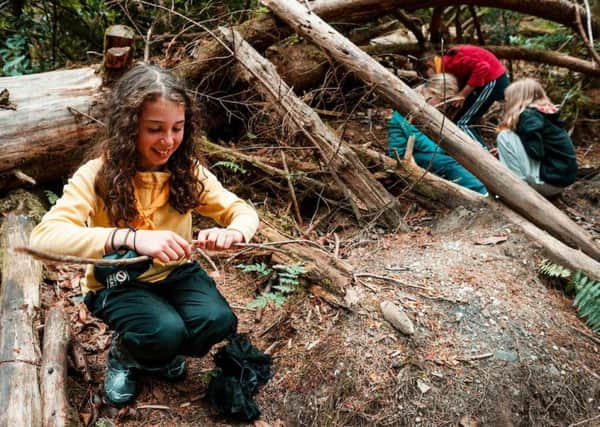Andrew Sharkey: National Playday: It's good for adults as well as kids


As Chief Commissioner of Scouts Scotland, a headteacher and a father, I get to see the benefits of play every day.
Play and outdoor learning is integral to Scouting; it always has been. We believe that children and young people should enjoy what they are doing in Scouts and have fun learning by doing. When a young person is taking part in new and challenging activities, both indoors and outdoors, they develop new life skills.
Advertisement
Hide AdAdvertisement
Hide AdIn Scouting, we incorporate play in a number of ways. For our youngest members, it can be as simple as visiting a local pond to explore and find out about nature. Or it could be heading to the local woodland to play and build dens. They then get to make their own choices about how to build a den and are responsible for how that it turns out. The simple decision-making skills they use while making their ‘homes’ stay with them and they then build on that as they move through Scouts and in their life outside of Scouting.
Play opportunities like den-building and exploring are open ended and stimulate children to be creative. Dealing with new and novel situations also helps them to develop the skills they need for life and it encourages our members to ask questions in a way that doesn’t happen inside a classroom. While it might seem simple, the skills developed through play and exploration are the basis of the skills they will need to lead expeditions and camping trips when they are older.
As our members get older, we build on what they have already learned and more adventurous activities are introduced alongside opportunities for play. At our Scout Adventures Centres, play can be taking part in activities like raft-building, bushcraft or crate-climbing. We gradually introduce more challenges for our young people, which helps to build their resilience and allows them to take risks in a safe way.
I think that sometimes there’s a lot of worry about technology that our young people have access to and the amount of “screen time” they have. But equally we have just celebrated our 12th year of growth at Scouts Scotland, meaning that every week 40,000 young people take part in Scouting at weekly meetings. In addition, our young people also enjoy the camps and sleepovers that take place at the weekends and school holidays. This means that those young people get to take part in fun, challenge and adventure week in week out at Scouts. I want more young people to have that opportunity which is why we are looking to grow Scouting in new communities, in remote and rural areas and in more areas of deprivation.
Play is also good for us adults. It’s not easy to immerse yourself in a game and you need to be willing to continue to develop skills, as I found out when I recently had to take part in a space hopper obstacle race. But I guess that’s one of the best things about being in the Scouts – you’re always learning skills for life.
Andrew Sharkey is the Chief Commissioner of Scouts Scotland and headteacher at St Kentigern’s Academy
